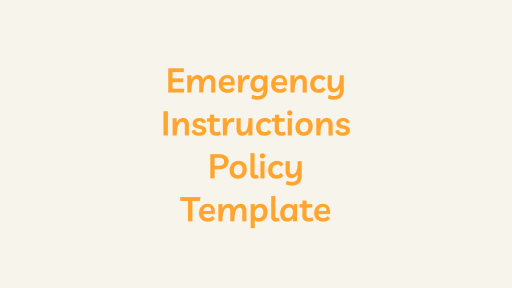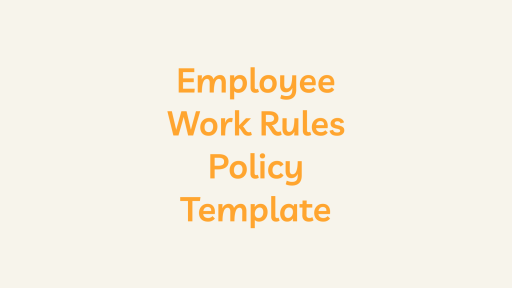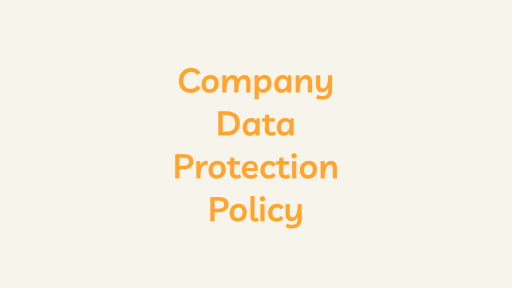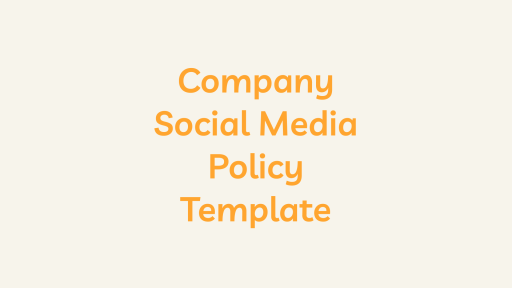What does the Dress Code Policy Template consist of?
The Dress Code Policy Template includes guidelines on employee attire and grooming expectations within an organization. It covers details such as acceptable clothing, personal hygiene, and any industry-specific requirements. The template aims to establish a professional and appropriate appearance for employees in the workplace.
Dress Code Policy Template – Version 1
[Company/Organization Name]
Effective Date: [Date]
Dress Code Policy
[Company/Organization Name] believes that professional attire contributes to a positive work environment and enhances the company’s image. This policy outlines the guidelines and expectations for appropriate dress and grooming in the workplace.
General Guidelines:
- Professional Appearance: Employees are expected to maintain a professional appearance that is clean, neat, and appropriate for the business environment. Dressing professionally contributes to a positive work atmosphere and reflects positively on the company.
- Business Casual Dress Code: [Company/Organization Name] follows a business casual dress code policy unless otherwise specified for certain departments or occasions. Business casual attire is defined as professional and presentable clothing that is comfortable, yet appropriate for the workplace.
- Compliance with Local Laws and Cultural Sensitivities: Employees must comply with local laws and regulations regarding dress codes, as well as cultural sensitivities and customs that may be relevant in the workplace.
Specific Dress Code Guidelines:
- Tops/Shirts:
- Acceptable: Collared shirts, blouses, sweaters, and tailored tops.
- Unacceptable: T-shirts, tank tops, crop tops, or shirts with offensive or inappropriate graphics or messages.
- Bottoms:
- Acceptable: Slacks, dress pants, skirts, dresses, or tailored trousers.
- Unacceptable: Shorts, denim jeans, leggings, sweatpants, or excessively tight or revealing attire.
- Footwear:
- Acceptable: Closed-toe shoes, loafers, dress shoes, or clean and presentable sneakers (if permitted).
- Unacceptable: Flip-flops, sandals, beachwear, or athletic shoes (unless for specific job requirements or authorized by management).
- Accessories:
- Acceptable: Conservative jewelry, watches, belts, and ties (if applicable).
- Unacceptable: Excessive or distracting accessories, such as large, noisy jewelry or accessories with offensive symbols or messages.
- Personal Hygiene and Grooming:
- Personal hygiene should be maintained at all times, including regular bathing, oral care, and use of deodorant.
- Hairstyles, facial hair, and grooming practices should be neat, clean, and appropriate for a professional workplace.
Exceptions and Special Circumstances:
Certain departments or job roles may have specific dress code requirements due to safety concerns or client interactions. Employees in these roles should adhere to the dress code guidelines established for their specific job function.
Enforcement and Disciplinary Action:
Employees are responsible for complying with the dress code policy. Non-compliance may result in corrective action, including verbal warnings, written warnings, or other disciplinary measures, up to and including termination of employment.
Review and Update:
This dress code policy will be periodically reviewed to ensure its effectiveness and compliance with applicable laws and regulations. Updates will be made as necessary.
If you have any questions or need clarification on this policy, please contact the Human Resources department.
[Company/Organization Name] appreciates your cooperation in maintaining a professional appearance that reflects positively on the company.
Employee:
I have read and understood the Dress Code Policy, and I do not have any questions.
[Employee’s Full Name]
[Employee’s Signature]
[Date]
Company:
[Company Name]
[Company Representative’s Name]
[Company Representative’s Title]
[Company Representative’s Signature]
[Date]
Version 2
[Company/Organization Name]
Effective Date: [Date]
Company Dress Code Policy
[Company/Organization Name] embraces a modern and inclusive work culture that values individuality, self-expression, and comfort. We believe that employees perform their best when they feel empowered to dress in a way that aligns with their personal style and preferences. This policy outlines the guidelines for dress and grooming that allow for a wide range of attire while maintaining a professional and respectful environment.
General Guidelines:
- Freedom of Expression: At [Company/Organization Name], we celebrate diversity and encourage employees to express themselves through their attire. We believe that personal style and individuality contribute to a vibrant and inclusive workplace.
- Respectful and Professional Appearance: While we promote freedom of expression, it is important to maintain a respectful and professional appearance that reflects positively on the company and considers the comfort and preferences of colleagues and clients.
Specific Dress Code Guidelines:
- Tops/Shirts:
- Acceptable: Tops and shirts of any style, including t-shirts, blouses, dress shirts, polo shirts, or any other top that reflects personal style and comfort.
- Unacceptable: Offensive or inappropriate graphics or messages on tops or shirts.
- Bottoms:
- Acceptable: Bottoms of any kind, including pants, skirts, dresses, jeans, shorts, or any other style that aligns with personal comfort and expression.
- Unacceptable: Extremely casual or revealing attire that may be considered inappropriate for the workplace.
- Footwear:
- Acceptable: Footwear of any kind, including sneakers, sandals, boots, high heels, or any other style that ensures comfort and safety.
- Unacceptable: Footwear that may compromise safety or excessively casual beachwear.
- Accessories:
- Acceptable: Accessories of any kind, including jewelry, watches, belts, hats, scarves, or any other items that showcase personal style and self-expression.
- Unacceptable: Accessories that may interfere with work or safety, or accessories with offensive symbols or messages.
- Personal Hygiene and Grooming:
- Personal hygiene should be maintained at all times, including regular bathing, oral care, and use of deodorant.
- Hairstyles, facial hair, and grooming practices should reflect personal style while maintaining cleanliness and professionalism.
Exceptions and Special Circumstances:
While we encourage individuality and personal expression, there may be certain exceptions and special circumstances where specific dress code requirements apply. This could include client meetings, formal events, or safety considerations. Employees will be informed of any specific requirements as necessary.
Enforcement and Disciplinary Action:
We trust our employees to use their judgment and dress appropriately while respecting the boundaries of professionalism. Instances of dress code violations will be addressed on a case-by-case basis, and disciplinary action will only be taken if there is a persistent disregard for the policy or if attire significantly disrupts the work environment.
Review and Update:
This dress code policy will be periodically reviewed to ensure its alignment with our modern and inclusive work culture. Feedback from employees is highly valued, and updates will be made as necessary to promote a positive and comfortable work environment.
If you have any questions or need clarification on this policy, please contact the Human Resources department.
[Company/Organization Name] appreciates your individuality and encourages you to embrace your personal style while maintaining professionalism.
Employee:
I have read and understood the Dress Code Policy, and I do not have any questions.
[Employee’s Full Name]
[Employee’s Signature]
[Date]
Company:
[Company Name]
[Company Representative’s Name]
[Company Representative’s Title]
[Company Representative’s Signature]
[Date]





